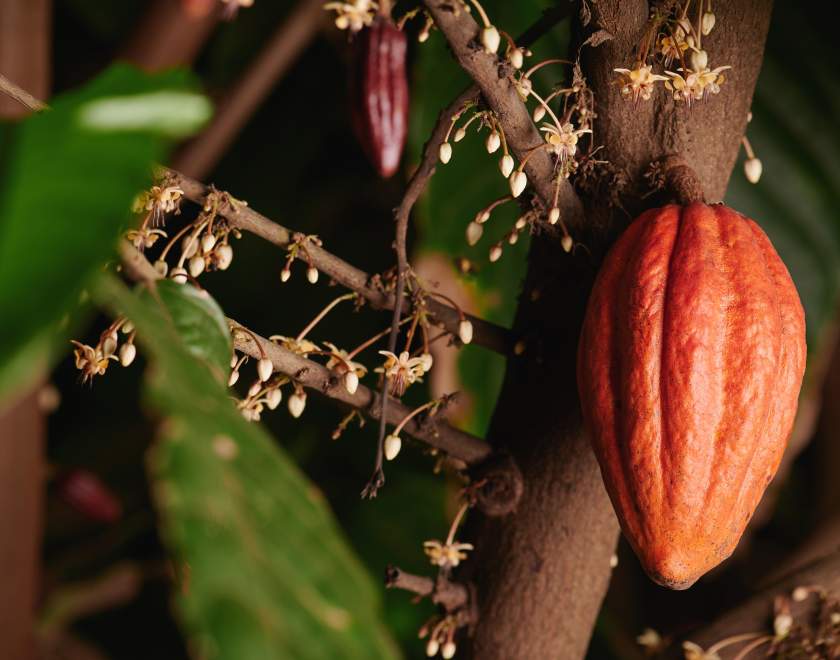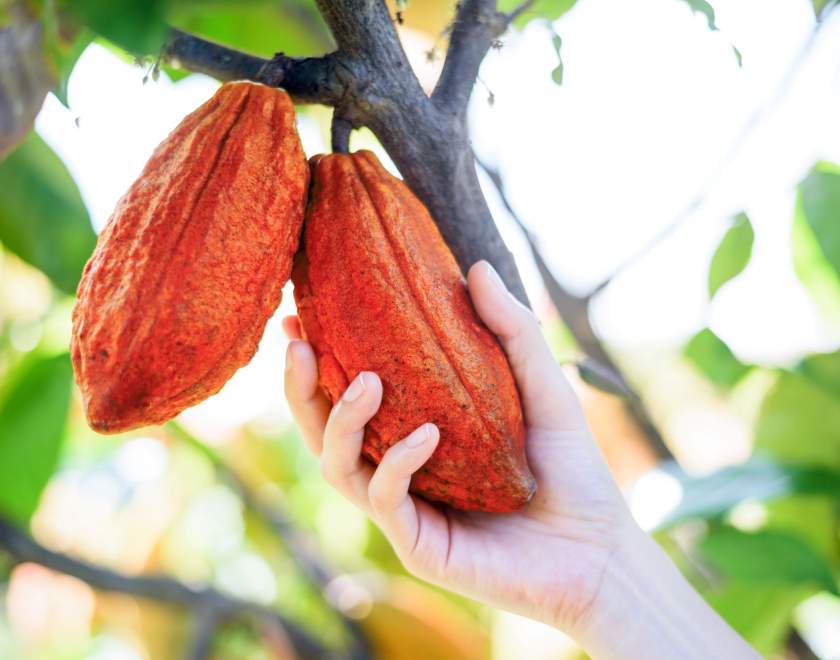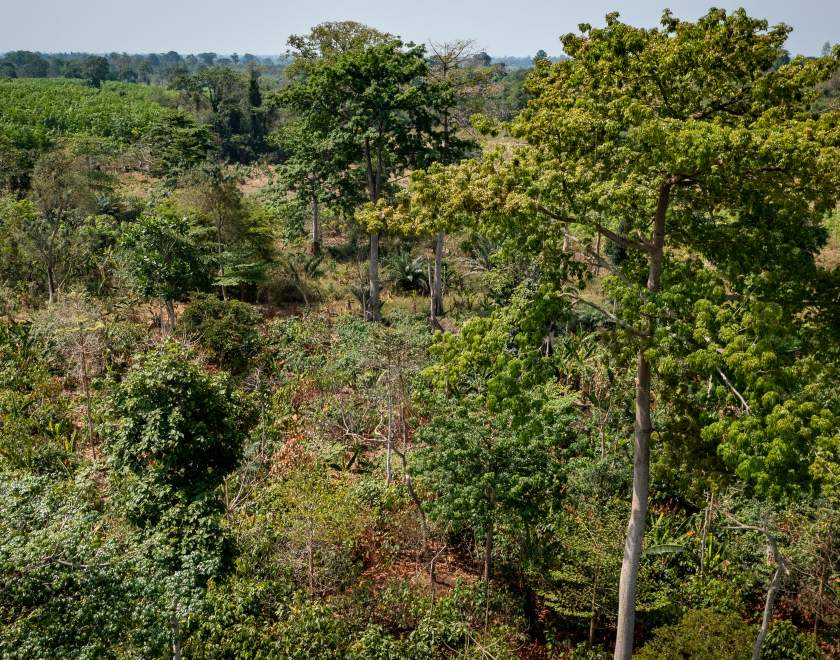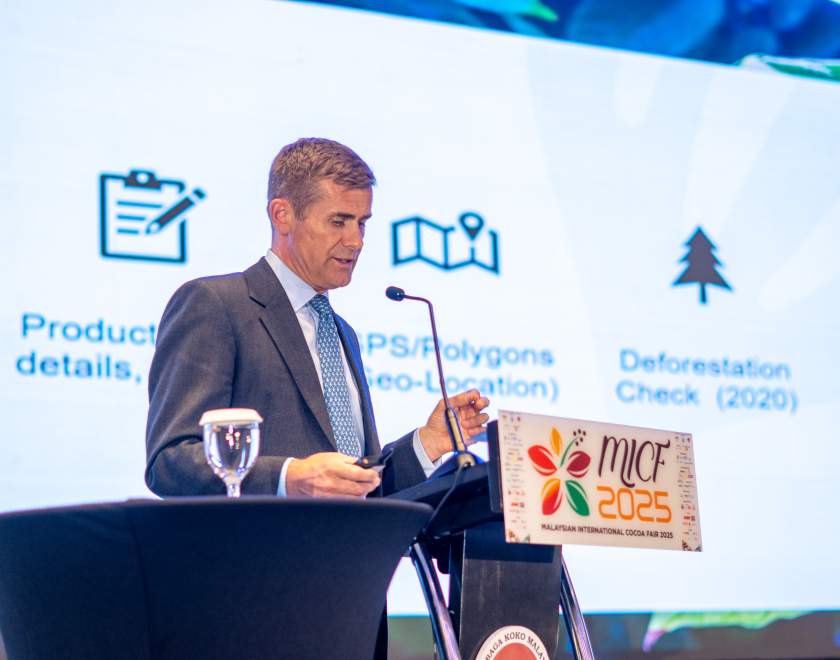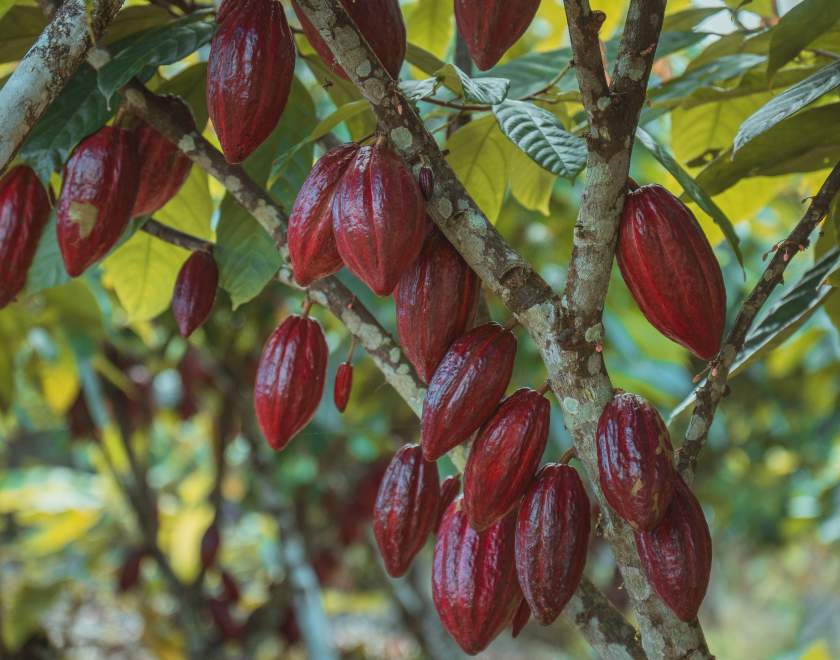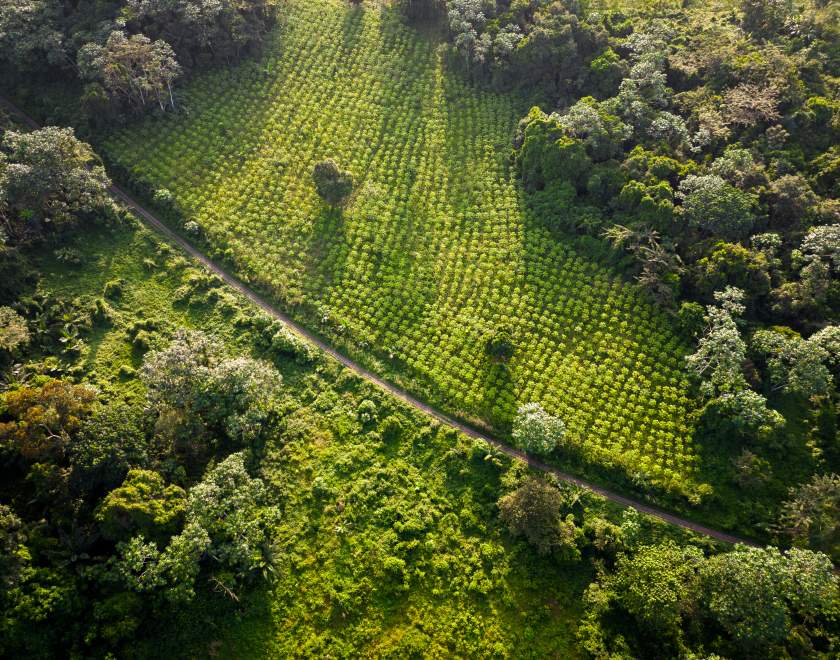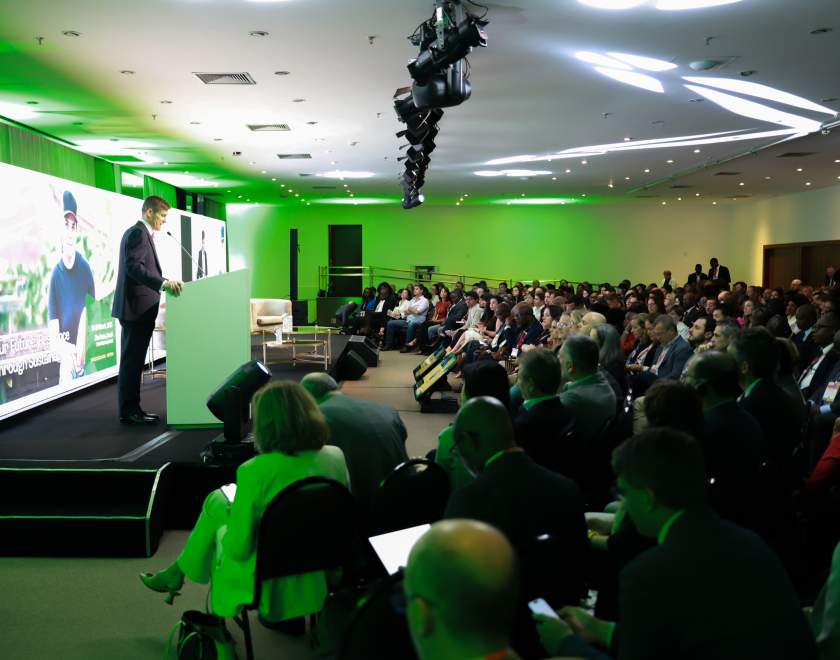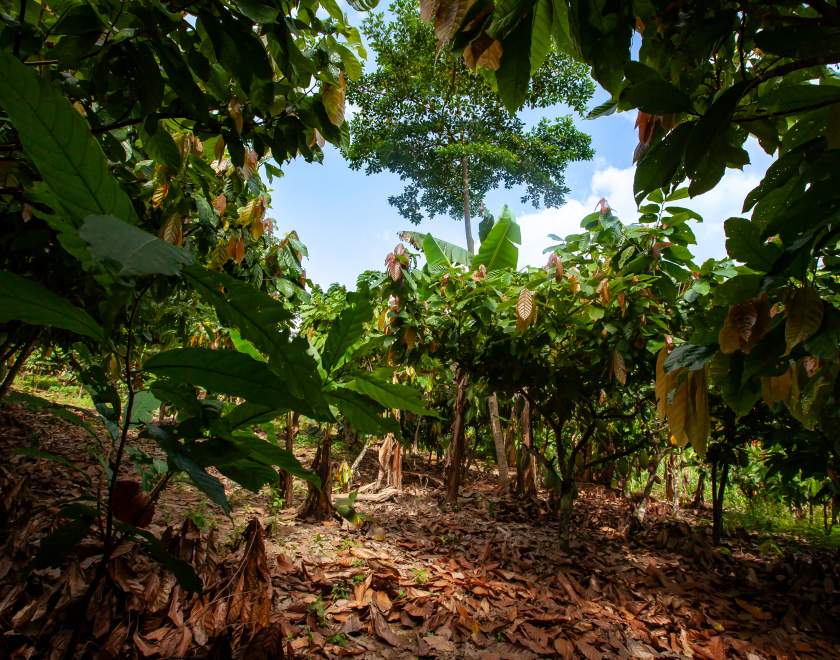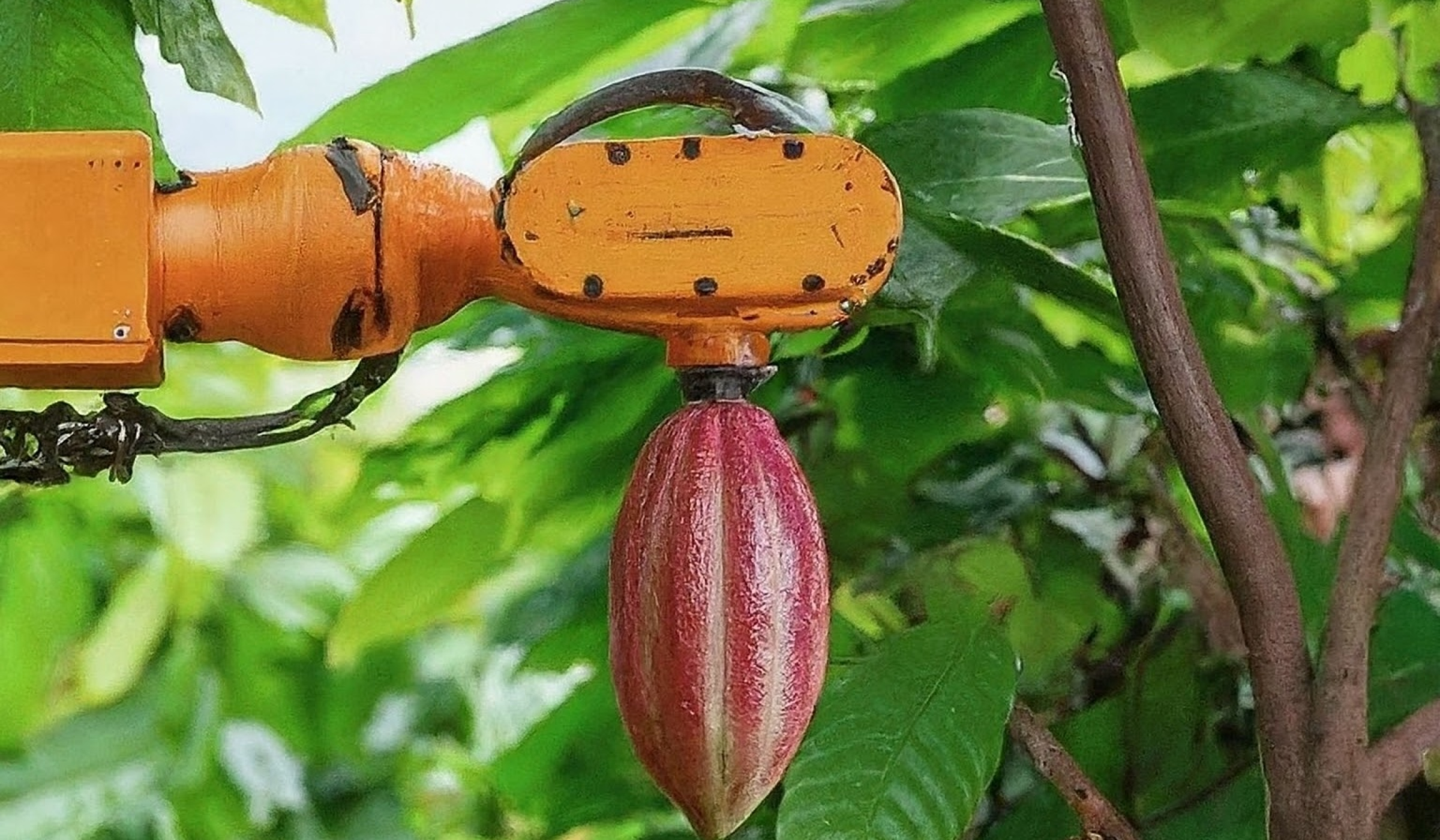
Tech, research and smarter farming are reshaping cocoa, boosting resilience, yields and sustainability while attracting a new generation to the sector.
With innovations in climate resilience, tech adoption, inclusive policies, and collaborative models, the industry is poised for a new era.
Recent advancements hold the potential to ensure cocoa remains a source of pleasure, economic benefit, and environmental balance, instilling hope and optimism while attracting a younger generation to take up cocoa farming.
In this special post by cocoaradar.com for the World Cocoa Foundation, we examine how innovations in technology, education, and ecology are shaping the future of cocoa.
As we heard at this year’s WCF Partnership Meeting in Brazil, smarter farming isn’t just about tools and techniques. It’s about rethinking the entire cocoa value chain in the face of traditional farming methods facing mounting challenges from climate change, pests, poor yields, and market volatility.
It’s a forward-thinking approach that blends science, technology, and sustainability to boost productivity while preserving ecosystems.
As one CEO of a logistics company and importer of cocoa said, “Data can be seen as gold, or dust. In cocoa, it has all too often been seen as dust.”
Precision Agriculture and Digital Tools
Is that attitude about to change? Of course, we are all aware by now of how digital technology is transforming cocoa fields, with the recent introduction of mechanisation in Brazil and the development of mobile apps over the past decade, providing weather updates, pest alerts, and best practices.
Fellow WCF organisations, including the International Cocoa Initiative, have been using Geographic Information Systems (GIS) to support their operations for some time. GIS Mapping helps monitor soil quality, farm boundaries, and crop health.
These technologies enable farmers to make more informed decisions, leading to improved crop health and higher yields. While remote sensing technology utilises drones and satellites to provide real-time farm insights, GPS mapping enables more data-driven decision-making.
In 2022, ECOM launched its Smarter Cocoa Charter, a company-wide approach to ethical and environmentally responsible cocoa trading, supported by the WCF.
'Cacao Robots'
We take a deep dive into this ‘brave new world’ and examine the latest innovative technology that companies are using to ensure cocoa remains a consistent source of supply, generating jobs and incomes for farmers while achieving an environmental balance.
Peirot, a high-tech agricultural company in Bahia, Brazil, is one company at the forefront of a truly groundbreaking initiative: developing cacao robots. It is partnering with local universities and seasoned cacao experts to push the boundaries of agricultural technology to revolutionise pollination on cocoa farms.
‘One of the primary challenges when growing cacao is achieving optimal fruit set. Those beautiful cacao flowers often struggle to develop into mature pods, a problem largely linked to inefficient pollination,’ it explains in a blogpost.
WCF member Luker Chocolate is another company practising what it calls ‘smarter cocoa farming’. It utilises digital tools and platforms to monitor and manage their farms, from soil quality to crop health, in real time.
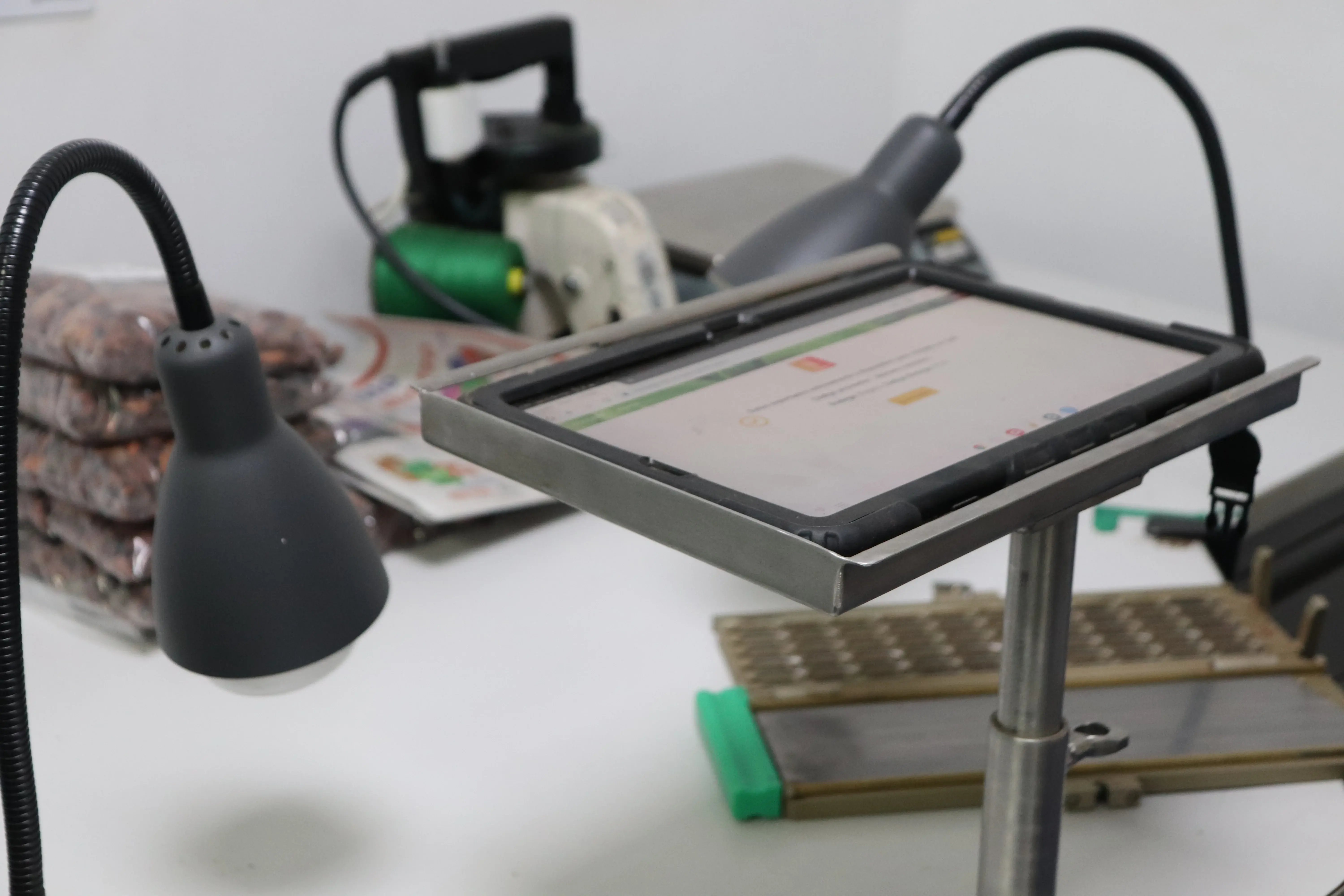
We are all aware that extreme weather events, an ageing farming population, and increasing regulatory demands reshape our industry.
Left unaddressed, these issues could lead to higher volatility in pricing, reduced availability of high-quality cocoa, and growing concerns from consumers and stakeholders.
“Cocoa farming is at a turning point. As demand for high-quality chocolate continues to grow, so do the pressures on the cocoa supply. Climate change, shifting demographics, and environmental challenges make it harder to maintain stable production, putting long-term sourcing at risk for chocolate brands and manufacturers,” Sergio Restrepo Luker’s VP of Innovation, said in a recent blogpost.
Scientific Innovation in Cocoa: Transforming Agriculture Through Research
On a trip in 2024 to Granja Luker, its state-of-the-art research centre in Colombia, this writer witnessed Luker Chocolate’s impressive work on data-driven, scientifically backed solutions that enhance productivity, sustainability, and resilience.
According to Luker, “Cocoa farming has long relied on experience-based practices, but today, research is unlocking new ways to improve yields, reduce losses, and secure consistent sourcing for chocolate manufacturers.”
It’s a noteworthy example of how scientific research and best practices directly benefit the entire chocolate supply chain. These innovations help manufacturers maintain consistent quality, pricing, and sustainability commitments by ensuring a more stable, predictable cocoa supply.
Applying Machine Learning for Cocoa Survival Predictions
In an area of immense current interest, Luker Chocolate has been utilising AI-driven analysis to gain a deeper understanding of pod mortality. This technology has the potential to revolutionise cocoa farming, allowing farmers to predict pod development with unprecedented accuracy and confidence.
"We trained an AI model with thousands of cocoa pod images. Now, we can predict survival rates with remarkable accuracy, allowing farmers to act before losses occur," says Juan José, Agricultural Research Lead at Granja Luker.
Here’s how this technology allows for targeted interventions, helping farmers to:
- Adjust nutrient and irrigation levels to support struggling pods.
- Identify trees with high loss rates and apply corrective measures.
- Improve overall yield efficiency without increasing land use.
Precision Farming & Data-Driven Decision-Making: The Next Big Leap
Up until now, traditional cocoa farming has relied heavily on experience and intuition. But with advances in precision agriculture, satellite monitoring, and AI-driven analytics, cocoa farming is evolving into a data-driven ecosystem. This shift empowers farmers with precise data, allowing them to make informed decisions and take control of their operations, optimising productivity while ensuring long-term sustainability.
Granja Luker is just one example of how to integrate cutting-edge technologies to refine yield prediction, resource management, and environmental monitoring, making cocoa farming more efficient, predictable, and resilient. In other words: “smarter”.
The future is now, who's in?
This article has been authored by Tony Myers, the CocoaRadar.com editor & founder, exclusively for WCF.
About CocoaRadar.com
CocoaRadar.com is a leading digital platform providing in-depth analysis, industry reports, and expert insights on the global cocoa and chocolate sector. By combining investigative journalism with data-driven research, CocoaRadar.com delivers actionable intelligence to stakeholders across the supply chain, including farmers, traders, manufacturers, and policymakers. The platform is committed to fostering transparency, sustainability, and innovation in the cocoa industry.
Captions:
- Brazilian agritech company Peirot is developing cacao robots to revolutionise pollination on cocoa farms. Image: Pierot
- Luker Chocolate is developing AI systems in cocoa producing and chocolate manufacturing. Image: Luker Chocolate

